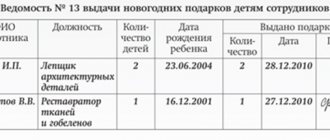The organization has the right to file a claim with the counterparty if he has violated obligations arising under the terms of the contract or the law (Article 309 of the Civil Code of the Russian Federation, Part 5 of Article 4 of the Arbitration Procedure Code of the Russian Federation and Article 136 of the Civil Procedure Code of the Russian Federation).
Making a claim is an organization’s right, not an obligation. For example, if a supplier has shipped a low-quality product, the buyer has the right (but is not obligated) to file a claim against him (in particular, demand a price reduction, eliminate the defect free of charge, etc.). This follows from Article 475 of the Civil Code of the Russian Federation.
Form and content of the complaint
Submit your claim in any written form. At the same time, clearly indicate which obligations the counterparty did not fulfill, the provisions of which document were violated (protocol, contract, agreement, etc.), offer your way out of the current conflict situation.
Attention: if the organization decides to make a claim to the counterparty, promptly notify him that a violation of the terms of the contract has been identified. Otherwise, he may refuse to satisfy the claim (see, for example, Article 483 of the Civil Code of the Russian Federation). If an organization decides not to file a claim but immediately goes to court, its claim will not be considered. It is impossible to go to court without skipping the stage of pre-trial dispute resolution (for example, immediately writing a statement of claim to collect a penalty). This follows from Article 128 of the Arbitration Procedural Code of the Russian Federation and Article 136 of the Civil Procedure Code of the Russian Federation.
For example, when making a claim, the buyer must notify the seller of a violation of the terms of the purchase and sale agreement regarding the quantity, assortment, quality, completeness, container and (or) packaging of the goods within the period prescribed by law, other legal acts or the contract. And if such a period is not established, within a reasonable period after the violation of the relevant term of the contract should have been discovered based on the nature and purpose of the goods. This procedure is established in Article 483 of the Civil Code of the Russian Federation.
Timeframe for consideration of a claim
The counterparty is obliged to consider the claim. The deadline for this can be set:
- legislation (see, for example, paragraph 5 of Article 12 of the Law of June 30, 2003 No. 87-FZ);
- agreement;
- internal regulations of the organization or business customs.
This follows from Article 309 of the Civil Code of the Russian Federation.
At the same time, civil legislation does not establish sanctions for violating this deadline (see, for example, Article 12 of the Law of June 30, 2003 No. 87-FZ or Article 37 of the Law of July 17, 1999 No. 176-FZ).
The norms of judicial law do not provide for any sanctions (Arbitration Procedure Code of the Russian Federation, Code of Civil Procedure of the Russian Federation).
Financial sanctions (for example, a fine) for violating the deadline within which a claim must be considered may be provided for in an agreement with the counterparty (clause 4 of Article 421 of the Civil Code of the Russian Federation).
What requirements can you make?
A claim can include one or more claims. For example, these requirements could be:
- pay sanctions for violation of the terms of the contract (Article 329 of the Civil Code of the Russian Federation);
- to pay damages. For example, related to the forced purchase of goods from another supplier at a higher price (Article 393 of the Civil Code of the Russian Federation);
- return the paid but not spent advance (Article 453 of the Civil Code of the Russian Federation);
- issue a return or replacement of products (goods). For example, if it is defective (Article 475 of the Civil Code of the Russian Federation);
- eliminate defects. For example, correct the quality of improperly performed work (clause 1 of Article 723 of the Civil Code of the Russian Federation);
- reduce the price, that is, mark down the object of the contract. For example, if a product was received of inadequate quality (clause 1 of Article 475 of the Civil Code of the Russian Federation).
How to make a debt adjustment in 1C 8.3
A situation often arises when it is necessary to adjust mutual settlements with counterparties. The data from the supplier or buyer may not match the data from our organization, and vice versa. This may occur as a result of:
- errors in accounting;
- when incorrect information was transmitted to the accounting department;
- writing off bad debts;
- changes to data as agreed by the parties;
- if you need to transfer the debt to another person, and so on.
Such situations are identified, as a rule, during the reconciliation of mutual settlements.
In this article I want to show how you can adjust debt in 1C 8.3 Accounting.
Actions of the counterparty upon receipt of a claim
The counterparty to whom the organization has filed a claim has the right to:
- acknowledge it;
- refuse to confess (for example, in the absence of his guilt in violating the obligation);
- continue business correspondence (for example, in order to obtain additional information or prove the absence of guilt in violating an obligation).
This follows from Article 401 of the Civil Code of the Russian Federation.
In the last two cases (refusal and continuation of correspondence), no entries need to be made in accounting (Article 5 of Law No. 402-FZ of December 6, 2011). Claims not recognized by the debtor do not affect taxation (Chapters 25, 26.2 and 26.3 of the Tax Code of the Russian Federation). This is due to the fact that there is no obligation or any settlement involved.
Situation: will the court accept for consideration the organization’s statement of claim against its counterparty if the counterparty left the claim previously sent to it without consideration?
Yes, he will.
In order for a court to consider a claim against a counterparty, the very fact of pre-trial (claim) proceedings between the parties is important, and not its result. Therefore, if the counterparty did not consider the received claim, did not respond to the organization, or during the proceedings the parties did not come to an agreement, the courts consider the pre-trial (claim) procedure for resolving disputes to be followed (see, for example, the resolutions of the Federal Antimonopoly Service of the North-Western District dated November 13, 2007 No. A56-49658/2005, Ural District dated June 20, 2005 No. F09-1757/05-S5). The court will accept the organization's statement of claim for consideration (Part 5, Article 4 of the Arbitration Procedure Code of the Russian Federation, Article 136 of the Code of Civil Procedure of the Russian Federation).
In the event that the debtor acknowledges a claim raised by an organization, the accounting and taxation of such a transaction depend on the nature of the claims presented to the counterparty.
In most cases, make settlements for claims recognized by counterparties using account 76 of subaccount 2 “Settlements for claims” (Instructions for the chart of accounts).
Using account 76
Accounting on account 76 is carried out in the event of situations not described in the explanation to accounts 60-76. Such operations usually include settlements of issued and received claims and insurance amounts. This account is also used to record deductions in accordance with judicial, executive and other administrative documents.
| Dt | CT | Description | Document |
| 76.01 | 44 | Selling expenses incurred in connection with the insured event are written off | Insurance contract |
| 76.02 | 60 | The amount of the claim due to the fault of the supplier is taken into account | Claim |
| 76 | 70 | The amount of funds due to the employee from other organizations is taken into account | Performance list |
| 58 | 73.03 | Securities were capitalized as dividends | Minutes of the board's decision |
| 66 | 76 | The loan was repaid by offsetting similar claims | Loan agreement |
Acknowledgment of the claim
Legislation or an agreement may provide, for example, the following types of sanctions for violation of obligations: penalties (fines, penalties), interest for late payment, etc. This follows from Articles 329 and 395 of the Civil Code of the Russian Federation.
In addition, the organization may demand that the culprit compensate for losses associated with violation of contractual obligations, including lost profits (Article 15 of the Civil Code of the Russian Federation). For example, if a sales contract is terminated due to the fault of the seller, the buyer has the right to apply the provisions of Article 524 of the Civil Code of the Russian Federation. Namely, to demand that the counterparty compensate him for losses incurred due to the need to purchase goods from another seller at a higher price. If a new contract is concluded within a reasonable time and at a reasonable price, the failed seller must compensate the buyer for the difference between the cost of the goods under the terms of the terminated and the new contract.
How to reflect in accounting and taxation the amounts of penalties (fines, penalties) issued by the organization and recognized by the debtor, see How to take into account the receipt of legal interest, penalties and interest for late fulfillment of obligations. Similarly, reflect the counterparty's compensation for losses.
An example of how to reflect in accounting and taxation the receipt of a penalty from a counterparty for violating the terms of an agreement. The organization applies a general taxation system
In February, Torgovaya LLC supplied Alpha LLC with goods worth 120,000 rubles. (including VAT – 18,305 rubles). The due date for their payment under the contract is February 21.
In case of late payment for the delivered goods, the buyer, according to the terms of the contract, must pay a penalty. The amount of the penalty is 0.1 percent of the amount of debt to pay for goods for each day of delay.
Alpha transferred payment for the goods delivered to Hermes only on March 24. On March 25, Hermes submitted a claim to Alpha for payment of a penalty for late payment under the contract (the delay was 31 days).
The amount of the penalty for late payment for goods was: 120,000 rubles. × 0.1% × 31 days = 3720 rub.
Alpha acknowledged Hermes' claim and paid a penalty.
In the Hermes accounting, the accountant made the following entries:
Debit 76-2 Credit 91-1 – 3720 rub. – a penalty was accrued for violation of the deadline for payment for goods;
Debit 51 Credit 76-2 – 3720 rub. - a penalty was received.
Hermes pays income tax monthly, using the accrual method. The accountant included the amount of the penalty (3,720 rubles) as part of the organization’s non-operating income.
Refund of prepayment
The organization has the right to demand the return of the advance (part of the advance) under the contract if the obligations under it were not fulfilled (Article 453 of the Civil Code of the Russian Federation). For example, if the supplier did not deliver the goods within the period specified in the contract, you can demand a refund of the amount paid for the delivery (clause 1 of Article 463 of the Civil Code of the Russian Federation). After canceling the obligations under the contract or changing them, submit a claim to your partner. From this moment on, the amount of prepayment transferred to the supplier (performer) is not an advance payment. It becomes the supplier's (performer's) debt to return the money. The procedure for recording such debt in accounting is not provided for by law. This means that the organization must establish it independently and consolidate it in its accounting policies for accounting purposes. Thus, the debt for the return of money can be accounted for in a separate subaccount to account 60 (for example, the subaccount “Debt of suppliers for unpaid advances”) or in account 76.
On the day when the counterparty acknowledges the debt (this can be confirmed by his letter or the act of reconciliation of mutual settlements), make the following entry:
Debit 76-2 (60) Credit 60 (76) – reflects the debt of the counterparty under the claim (based on agreement of the parties).
For organizations that apply the general taxation regime, such an operation will affect the calculation of taxes as follows.
When calculating income tax (both accrual and cash methods), the amount of the advance returned by the counterparty will not affect the tax base (Articles 41, 249–251, paragraph 1 of Article 272, paragraph 2 of Article 273 of the Tax Code of the Russian Federation).
However, such an operation will have an impact on VAT calculations. In the quarter in which the advance is returned to the partner, restore the VAT previously accepted for deduction (subclause 3, clause 3, article 170 of the Tax Code of the Russian Federation).
For more information, see How to recover input VAT.
An example of reflecting in accounting operations for the return of an advance payment that has not been processed by the supplier. The organization applies a general taxation system
On September 20 (Q3), Alpha LLC transferred 100 percent prepayment under the agreement dated September 1 to Torgovaya LLC. The contract provides for the supply of a consignment of goods to Alfa in the amount of 590,000 rubles. (including VAT - 90,000 rubles) in October (IV quarter).
To account for settlements with suppliers, the accountant uses subaccounts opened to account 60 (subaccount “Advances issued”) and to account 76 (subaccount “VAT settlements from advances issued”).
The following entries were made in Alpha's accounting:
Debit 60 subaccount “Settlements for advances issued” Credit 51 – 590,000 rub. – an advance payment has been made towards the upcoming shipment of goods;
Debit 68 subaccount “Calculations for VAT” Credit 76 subaccount “Calculations for VAT from advances issued” – 90,000 rubles. – VAT paid to the supplier as part of the advance payment is accepted for deduction.
By the deadline established in the contract, Hermes did not have time to purchase the required quantity of products and did not deliver. On November 21, Alpha submitted a claim to Hermes for violation of the deadline for fulfilling the contract with a request to terminate it.
On November 22, the contract between Hermes and Alpha was terminated. On the same day, Hermes returned to Alpha the advance received in the amount of 590,000 rubles. (including VAT – 90,000 rubles).
The following entries were made in Alpha's accounting records:
Debit 76-2 Credit 60 subaccount “Settlements for advances issued” – 590,000 rubles. – the supplier’s debt is reflected in the amount of the advance that is subject to return due to termination of the contract for the submitted claim;
Debit 51 Credit 76-2 – 590,000 rub. – the supplier returned the unpaid advance;
Debit 76 subaccount “Calculations for VAT on advances issued” Credit 68 subaccount “Calculations for VAT” - 90,000 rubles. – VAT, previously accepted for deduction, has been restored.
Simplified organizations do not take into account the amount of advance payment returned by the counterparty when calculating the single tax. For more information about this, see: On what income do you need to pay a single tax when simplified.
When calculating UTII, the returned advance does not affect the calculation of tax (Article 346.29 of the Tax Code of the Russian Federation).
Offsetting between organizations
The program also allows you to offset the debt of a buyer or supplier when making payments to a third organization (the corresponding value is selected in the “On account of debt” field).
In addition to debt offset, the standard “Debt Adjustment” document performs the following operations:
- debt write-off;
- offset of advances; transfer of debt (to another counterparty);
- other adjustments (with arbitrary indication of debtor and creditor).
The selection of an operation is available in the “Type of operation” field.
Watch our video about the debt adjustment document:
Unfortunately, we are physically unable to provide free consultations to everyone, but our team will be happy to provide services for the implementation and maintenance of 1C. You can find out more about our services on the 1C Services page or just call +7 (499) 350 29 00. We work in Moscow and the region.
programmist1s.ru
Purchase returns
You can return purchased goods for the following reasons:
- provided for by law (for example, clause 1 of article 466, clause 1 of article 468, clause 2 of article 475 and clause 2 of article 480 of the Civil Code of the Russian Federation);
- specified in the contract (clause 4 of article 421 of the Civil Code of the Russian Federation).
In accounting and taxation, a claim with a requirement to take back the goods is considered recognized after the return has been carried out (Article 5, paragraph 1 of Article 9, paragraph 1 of Article 10 of the Law of December 6, 2011 No. 402-FZ and Chapter 25, 26.2 and 26.3 of the Tax Code of the Russian Federation).
For more information about accounting and taxation of this operation, see:
How can a buyer record the return of goods on the grounds provided for by law?
- How can the buyer take into account the return of goods on the grounds provided for in the agreement?
If the counterparty is presented with a requirement to replace the returned goods, then in accounting and taxation the satisfaction of such a claim should be reflected in two operations: the return of some goods and the purchase of others.
Postings for writing off debt in 1C 8.3
The document is ready and you can post it. As a result, it will generate the following accounting entries:
As you can see, the entries are generated as follows: if these are accounts receivable, then they will be classified as expenses, if they are accounts payable, they will be classified as income.
Now we will reformat our card according to the 60th account:
As you can see, the debt has disappeared.
See also the video on the document “Debt Adjustment” in 1C 8.3:
Unfortunately, we are physically unable to provide free consultations to everyone, but our team will be happy to provide services for the implementation and maintenance of 1C. You can find out more about our services on the 1C Services page or just call +7 (499) 350 29 00. We work in Moscow and the region.
programmist1s.ru
Correction of marriage
If an organization has received a defective product, it has the right to demand that the defect be eliminated free of charge (Article 475 of the Civil Code of the Russian Federation). A similar rule applies in case of poor quality work (see, for example, Article 723 of the Civil Code of the Russian Federation).
Warranty repairs (warranty service) can be carried out by:
- trade organizations (including importers) (clause 7 of article 5 of the Law of February 7, 1992 No. 2300-1).
Warranty repairs (warranty service) are subject to goods (results of work) for which a warranty period has been established. The start date of the warranty period is the date of transfer of goods (results of work performed) to the buyer (customer). That is, the date of registration of shipping documents or the acceptance certificate for work performed. This procedure follows from the provisions of Articles 470, 471 of the Civil Code of the Russian Federation, paragraph 2 of Article 19 of the Law of February 7, 1991 No. 2300-1.
To account for goods returned to correct defects, you can open a subaccount “Property under warranty” to account 41 (08, 01, 10). A unified form of the primary document with which the parties could formalize the acceptance and transfer of goods for warranty service is not provided for by law. Therefore, such a document can be drawn up in any form, containing all the mandatory details of the primary accounting documentation. This follows from paragraph 2 of Article 9 of the Law of December 6, 2011 No. 402-FZ.
For organizations that apply the general taxation regime, such an operation will affect the calculation of taxes as follows.
Input VAT on acquired material assets can be deducted in the general manner (clause 1 of Article 172, clause 2 of Article 171 of the Tax Code of the Russian Federation).
The value of inventory items purchased and transferred for warranty service will not reduce the tax base for income tax.
This is due to the fact that both with the cash and accrual methods, one of the conditions for writing off the cost of purchased goods as expenses is their sale (clause 1 of Article 272, clause 3 of Article 273, subclause 3 of clause 1 of Art. 268, Article 320 of the Tax Code of the Russian Federation). A product transferred to correct a defect cannot be sold to end consumers, which means its value cannot be written off (Articles 470, 471 of the Civil Code of the Russian Federation).
Before being written off for production (operation), it will not be possible to take into account when calculating income tax the materials transferred to the counterparty for correction of defects (clause 2 of Article 272, subclause 1 of clause 3 of Article 273, clause 1 of Article 254, subclause 1 Clause 3 of Article 273 of the Tax Code of the Russian Federation). As well as expenses for the acquisition of fixed assets (depreciation charges) that were not put into operation due to an identified defect (clause 3 of Article 272, subclause 2 of clause 3 of Article 273, clause 4 of Article 259 of the Tax Code of the Russian Federation) .
Similar rules apply for calculating the single tax when simplifying the difference between income and expenses (with the exception of provisions on VAT) (subclauses 1, 5, 23, clause 1, article 346.16, subclauses 1, 2, 4, clause 2, art. 346.17 Tax Code of the Russian Federation). Input tax on the cost of acquired valuables cannot be deducted (clause 2 of Article 346.11, clause 2 of Article 171 of the Tax Code of the Russian Federation). VAT can be included in expenses in the same period as the costs themselves, the acquisition of which it is associated with (subclause 8, clause 1, article 346.16, subclause 3, clause 2, article 170 of the Tax Code of the Russian Federation).
The transaction for the transfer of goods to correct the defect will not affect the amount of UTII (Article 346.29 of the Tax Code of the Russian Federation).
Reflect the independent elimination of defects in purchased goods in the same way as losses from internal defects.
An example of debt in 1C
Let's say we have the following situation:
an accountable person - an employee of the organization paid the communication service provider for a certain period in advance (in advance) 3,500 rubles.
The provider issued certificates in the amount of 4,460.40 rubles. But as a result of carrying out the act of reconciliation of mutual settlements in 1C, it turned out that in the last month the services were not provided to us in full, and the issued act was signed and registered for the full amount of 1,522.20 rubles. Accounts payable amounted to 960.40 rubles.
Let’s make sure of this by generating the “Account Card 60” report with the selection of the organizations we need:
Let's try to correct the current situation.








